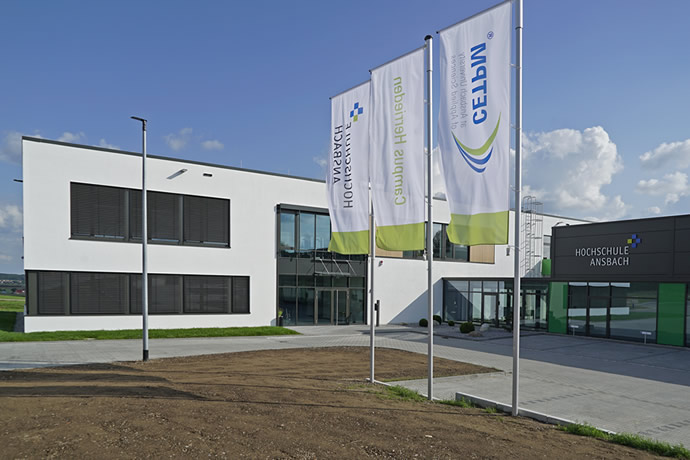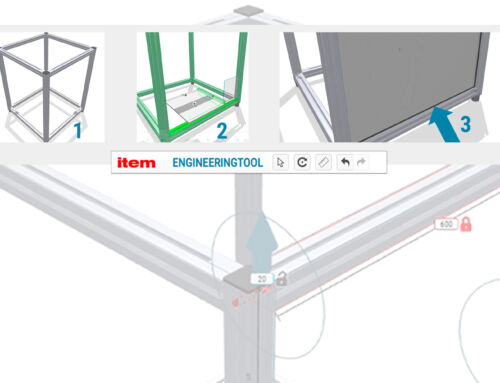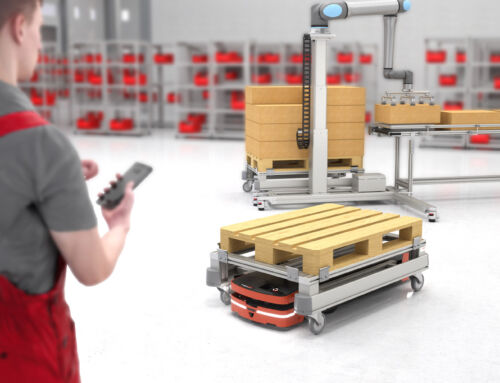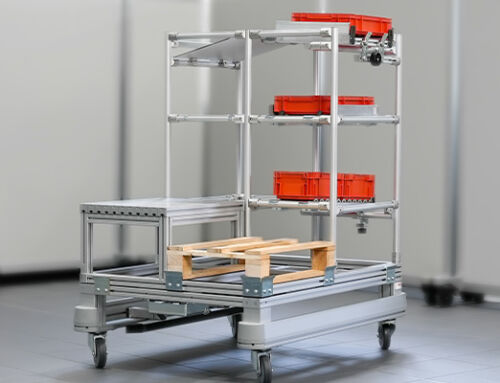The fourth industrial revolution is also transforming the education/training and labour market.
All good things come in threes – or should it be fours? So far we have looked at the general principles of Industry 4.0 and its close links with ergonomics. The third part of our series about what is probably the key transformation in the industrial working environment focuses on education and training. Due to the complexity of this issue, changes are taking place in many different ways. Content-related changes are going hand in hand with fundamental changes to educational establishments/training centres and knowledge transfer. A number of questions need to be addressed. What is the best way of representing these complex changes in vocational education and training? Will entire occupational profiles change, for example? And what are the options for employees who have been in their professions for a long time?
Industry 4.0 in the world of training and education
“Digitisation is leading to fundamental changes in education and training. Our aim is to work together to actively shape this process,” says State Secretary for Education and Research Cornelia Quennet-Thielen. The December 2016 policy document of the Standing Conference of the Ministers of Education and Cultural Affairs on education in the digital world explicitly addresses issues such as the Internet of Things and smart craftsmanship. As the digital education/training monitor reveals, however, there is still some way to go in terms of implementation. According to the surveys referred to, a great many people working in education remain to be convinced by forms of digital learning involving apps and interactive whiteboards.
Less qualified young people, on the other hand, are enthusiastic about digital learning. The study concludes that digital learning options could greatly motivate this group and help improve their chances of advancement. This aspect is a further indication of the potential of Industry 4.0 for actively shaping the future. Higher education is no exception. Admittedly, there is no dedicated study programme for Industry 4.0 based on express collaboration between various disciplines. This would not do justice to the complexity of the different programmes. It is therefore up to courses to adapt accordingly. The fourth industrial revolution makes its presence most felt in mechanical engineering, electrical engineering and IT. The main courses in these fields offer many different options for looking more closely at the new technological possibilities.
Vocational education and training 4.0 – a key political issue
The German Federal Ministry of Education and Research has also responded to this rapid development. In 2016, it published a guideline for funding digitisation at inter-company vocational training centres and competence centres. It is a well-known fact that the aspects of training and education that cannot be carried out at the relevant company take place at inter-company vocational training centres. By 2019, these centres are to benefit from funding of up to 74 million euros. There are two aims here. On the one hand, educational establishments and training centres can apply for selected equipment (such as 3D printers or robot assistants). On the other, pilot projects will take place to test the success of new digital learning methods.
Digitisation in the world of work
In view of digitisation, labour market experts generally recommend having as broad a knowledge base as possible. A mechanical engineer who is also well versed in areas such as data security or artificial intelligence has good job prospects – not only due to the skills acquired but also in terms of easier coordination with colleagues from other departments. The keyword here is interdisciplinarity. Concepts such as the smart factory with its cyber-physical systems (CPS) or the use of collaborating robots require a fundamental rethink. This does not mean humans would be downgraded as is often assumed, though. Quite the opposite in fact. New, creative work methods are emerging and the range of activities is growing all the time.
As already mentioned, engineers need to expand their IT know-how and, conversely, IT specialists must pay even greater attention to specific application contexts in industry. The individual disciplines can only benefit from this. Despite ongoing task development, humans are by no means being eliminated. The foundation has been laid for preparing young people for the consequences of digitisation. But what about those people who started out on their careers in the analogue world? Lifelong learning is the key here. Numerous further training measures and associated recommendations are offered, for example, by the knowledge forum of the Association of German Engineers and by the German Federal Ministry for Economic Affairs and Energy. So there has been no change to the basic principles for a long working life – proactivity and a thirst for knowledge.
Are you interested in the impact of Industry 4.0 on mechanical engineering?
Then we have the perfect solution for you. Simply subscribe to the item blog by completing the box at the top right!









